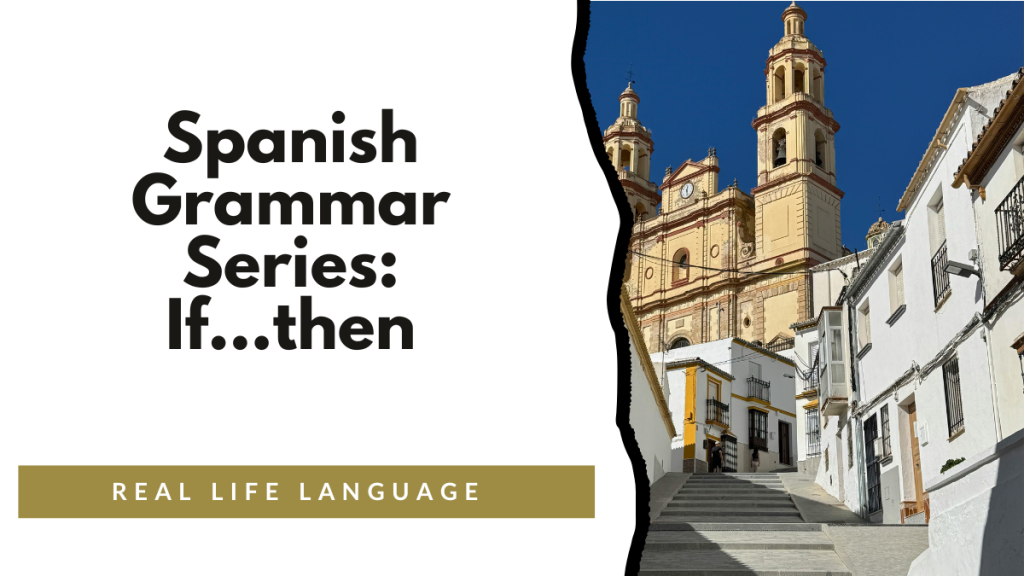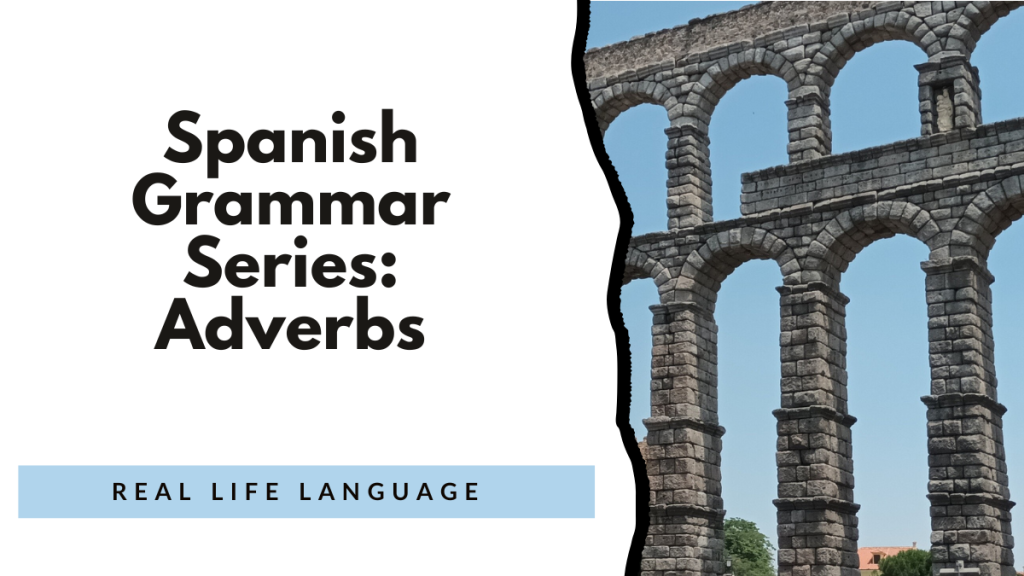The conditional tense is used to express what would happen or what someone would do under specific circumstances. It allows speakers to discuss possibilities, make polite requests, and imagine hypothetical situations. The conditional often answers questions like: “What would you do…?” or “What would happen if…?”
Mastering this tense helps learners talk about intentions, plans, and imagined scenarios with clarity and confidence.
1) What Does the Conditional Mean?
The conditional is used to talk about:
- What would happen under certain conditions.
- Polite requests or suggestions.
- Hypothetical or imagined situations.
- Probability in the past.
English equivalents:
- I would go.
- She would study.
- They would travel.
Spanish examples:
- Yo iría contigo. → I would go with you.
- Ella estudiaría más si tuviera tiempo. → She would study more if she had time.
- Ellos viajarían a España. → They would travel to Spain.
2) How to Form the Conditional
The conditional tense is very easy to form because:
- You use the entire infinitive (like the future tense), and
- You add a single set of conditional endings for all -AR, -ER, and -IR verbs.
Formula:
Infinitive + Conditional Endings
| Subject | Ending |
| yo | -ía |
| tú | -ías |
| él / ella / usted | -ía |
| nosotros / nosotras | -íamos |
| vosotros / vosotras | -íais |
| ellos / ellas / ustedes | -ían |
3) Regular Verb Conjugations
-AR Example: hablar (to speak)
| Subject | Form |
| yo | hablaría |
| tú | hablarías |
| él/ella/Ud. | hablaría |
| nosotros | hablaríamos |
| vosotros | hablaríais |
| ellos/ellas/Uds. | hablarían |
Yo hablaría con ella si pudiera. → I would talk to her if I could.
-ER Example: comer (to eat)
| Subject | Form |
| yo | comería |
| tú | comerías |
| él/ella/Ud. | comería |
| nosotros | comeríamos |
| vosotros | comeríais |
| ellos/ellas/Uds. | comerían |
Comeríamos juntos, pero no tengo hambre. → We would eat together, but I’m not hungry.
-IR Example: vivir (to live)
| Subject | Form |
| yo | viviría |
| tú | vivirías |
| él/ella/Ud. | viviría |
| nosotros | viviríamos |
| vosotros | viviríais |
| ellos/ellas/Uds. | vivirían |
Vivirían en otro país si pudieran. → They would live in another country if they could.
4) Irregular Conditional Stems
The conditional tense uses the same irregular stems as the future tense, with the same endings.
A. Drop the -e
| Infinitive | Stem | Example | English |
| poder | podr- | podría | I would be able |
| querer | querr- | querrías | you would want |
| saber | sabr- | sabría | I would know |
| caber | cabr- | cabríamos | we would fit |
| haber | habr- | habría | there would be |
Habría más tiempo mañana. → There would be more time tomorrow.
B. Replace the vowel with -d
| Infinitive | Stem | Example | English |
| poner | pondr- | pondría | I would put |
| salir | saldr- | saldrías | you would go out |
| tener | tendr- | tendría | he/she would have |
| valer | valdr- | valdrían | they would be worth |
| venir | vendr- | vendríamos | we would come |
Tendríamos más dinero si trabajáramos más. → We would have more money if we worked more.
C. Completely Irregular Stems
| Infinitive | Stem | Example | English |
| decir | dir- | diría | I would say / tell |
| hacer | har- | harías | you would do / make |
Te diría la verdad. → I would tell you the truth.
Haría todo por ti. → I would do anything for you.
5) Summary Chart: Conditional Endings
| Person | Ending | Example (hablar) |
| yo | -ía | hablaría |
| tú | -ías | hablarías |
| él/ella/Ud. | -ía | hablaría |
| nosotros | -íamos | hablaríamos |
| vosotros | -íais | hablaríais |
| ellos/ellas/Uds. | -ían | hablarían |
Same endings for all verbs — even irregulars.
6) Uses of the Conditional Tense
A. To express what would happen
- Viajaría más si tuviera dinero. → I would travel more if I had money.
- Ellos comerían en casa, pero no hay comida. → They would eat at home, but there’s no food.
B. To make polite requests or offers
- ¿Podrías ayudarme? → Could you help me?
- ¿Me dirías la hora, por favor? → Would you tell me the time, please?
- Querría un café, por favor. → I’d like a coffee, please.
The conditional softens commands and makes speech sound more courteous.
C. To express hypothetical situations
Used with the imperfect subjunctive in “if” (si) clauses.
Structure:
→ Si + imperfect subjunctive, conditional
Examples:
- Si tuviera tiempo, iría contigo. → If I had time, I would go with you.
- Si ganáramos la lotería, viajaríamos por el mundo. → If we won the lottery, we would travel the world.
The imperfect subjunctive sets up the unreal condition; the conditional shows the imagined result.
D. To express probability or conjecture in the past
Used like the future tense, but refers to past time frames.
Examples:
- Serían las ocho cuando llegaron. → It must have been around eight when they arrived.
- Estaría cansado ayer. → He was probably tired yesterday.
English equivalents: must have been, was probably, I wonder if…
7) Conditional vs. Future
| Future (will) | Conditional (would) |
| Estudiaré mañana. → I will study tomorrow. | Estudiaría si tuviera tiempo. → I would study if I had time. |
| Habrá una fiesta. → There will be a party. | Habría una fiesta si no lloviera. → There would be a party if it didn’t rain. |
| Diré la verdad. → I will tell the truth. | Diría la verdad, pero tengo miedo. → I would tell the truth, but I’m afraid. |
Future = what will happen.
Conditional = what would happen.
8) Common Expressions Using the Conditional
| Expression | English | Example |
| Me gustaría… | I would like… | Me gustaría visitar España. |
| Podrías…? | Could you…? | ¿Podrías ayudarme? |
| Deberías… | You should… | Deberías estudiar más. |
| Sería bueno… | It would be good… | Sería bueno descansar. |
| ¿Qué harías tú? | What would you do? | ¿Qué harías tú en mi lugar? |
9) Practice: Fill in the Blanks
Conjugate the verbs in parentheses in the conditional tense.
- Yo __________ (ir) contigo, pero tengo que trabajar.
- Nosotros __________ (hacer) la tarea, pero no entendemos.
- Ella __________ (poder) venir mañana.
- ¿Qué __________ (decir) tú en esta situación?
- Mis padres __________ (viajar) más si tuvieran tiempo.
- Me __________ (gustar) aprender francés.
Answers:
- iría
- haríamos
- podría
- dirías
- viajarían
- gustaría
10) Practice: Translate to Spanish
- I would call you, but I lost your number.
- We would buy a car if we had more money.
- Would you help me, please?
- They would be happy to go.
- What would happen if it rained?
Answers:
- Te llamaría, pero perdí tu número.
- Compraríamos un coche si tuviéramos más dinero.
- ¿Me ayudarías, por favor?
- Estarían felices de ir.
- ¿Qué pasaría si lloviera?
11) Common Pitfalls & Fixes
| Wrong | Correct | Why |
| Hablarás si puedes. | Hablarías si pudieras. | “If” clause = hypothetical → conditional. |
| Voy a decirte. | Te diría. | Conditional = would, not “going to.” |
| Me gustó ir. | Me gustaría ir. | Conditional softens and adds politeness. |
| Haré eso si tuviera tiempo. | Haría eso si tuviera tiempo. | “Would” requires conditional. |
12) Quick Summary Chart
| Concept | Rule | Example |
| Formation | Infinitive + ía, ías, ía, íamos, íais, ían | hablaría |
| Same endings for all verbs | yes | comería, viviría |
| Irregular stems | same as future | har-, dir-, podr-, tendr- |
| Use 1 | Hypothetical “would” actions | Iría contigo. |
| Use 2 | Polite requests | ¿Podrías ayudarme? |
| Use 3 | Probability in the past | Serían las ocho. |
| With si clauses | Si + imperfect subjunctive → conditional | Si tuviera dinero, viajaría. |
Why the Conditional Matters
The conditional tense allows speakers to:
- Express hypothetical, polite, and imaginative ideas
- Use “if” (si) clauses accurately
- Add politeness and nuance to conversation
- Communicate probability and speculation naturally
It bridges the gap between reality and possibility, helping learners express what could, would, or might happen — a hallmark of intermediate-level proficiency.
Building Proficiency for World Language Learners: 100+ High-Interest Activities
Discover over 100 dynamic activities to make world language learning interactive and fun. I wrote this book with some of my favorite activities for educators aiming to build proficiency with high-impact strategies.
Learn more and get your copy here.
5 Weeks of No and Low Prep Fun
Need quick, engaging activities for your class? This free guide includes 25 no-prep and low-prep ideas to save time while keeping students excited about learning.
Download your free copy now.
100s of videos to learn Spanish:

